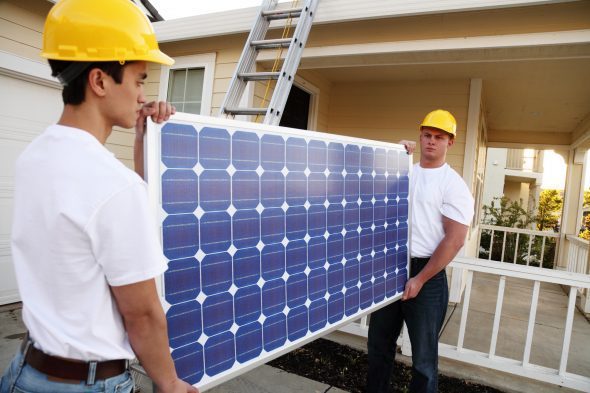Australians want their workplaces to become more sustainable, but a lack of awareness of what their companies are doing to decarbonise their operations and combat global warming highlights a worrying gap for the climate transition.
Companies that have sustainability or climate policies have an edge over those which don’t in the race for talent, says the Zen Energy This is Transition report.
More than two-thirds of the 1140 people surveyed say they are proud to work for a company which takes climate change seriously.
A third of 18-35 year olds would consider quitting if their employer didn’t commit to climate action, compared to about 10 per cent of older people – a major signal to corporate Australia to get on top of climate action if they want to retain staff.
“Once people are informed about their company’s climate action plans and what’s involved it increases their likelihood in staying with that company, and people are reflecting back saying I wouldn’t want to work for a company that didn’t have that commitment,” says Paul Sheridan, Zen Energy communications head, who led the study.
“It’s challenging to get a climate action plan up and running and embodying that climate risk, but there are those long term benefits. It benefits a business in terms of retention and they are an employer of choice into the future.”
However, in a busy world, that desire for corporate cleanliness doesn’t translate into employees being across the details of what their company is doing. Only a quarter of those surveyed say they know what their company has committed to and what actions it’s taking.

And this is a big risk, thinks Sheridan.
“While there are lots of positives there for businesses that do the hard work to get those plans in place, overall we’ve got only a quarter of the population in this sample saying they’re aware of and informed about a company having an action plan. The rest of the sample is saying they aren’t aware,” he says.
“There’s a real vulnerability there.
“Our first quarter report found support for the energy transition, but only by a slim majority. What I see in this second quarter is… a large majority who aren’t informed about corporate climate action.
“That’s another worrying sign that the commitment to climate action generally is not trickling down to ensure the transition is happening effectively.”
Don’t fake it
Companies can’t fake good policy or sustainable actions.
A deepening mistrust of corporate Australia and a sense that marketers have been allowed free rein for too long with climate claims is souring consumer sentiment towards climate commitments.
The report found that as consumers, Australians are becoming increasingly sceptical of environmental claims by companies and weary of having to personally check every single one.
That distrust combined with the perception that good environmental credentials come at a higher price mean time-poor and money-poor Australians look on these as unaffordable or unachievable for them.
The report also located another generational divide.
“Older participants say that businesses should only prioritise environmental commitments if they have the capabilities to do so,” the report said.
“There’s a concern amongst this group that if a business focuses too much on their environmental commitments, it will come at the expense of their core business priorities. So, whilst they agree that business should take action to reduce their carbon emissions, they say it shouldn’t undermine their bottom line.
“Some younger, more progressive participants say that they want to see businesses and industries take more responsibility for taking action because this will create more meaningful, systemic change rather than the focus being solely on individuals or consumers to change their behaviours.”
And yet inside their own workplaces, the easiest way to get employees generally to notice a company’s climate action is through actions at an individual level, such as encouraging staff to recycle.

Surprisingly, it’s the construction and manufacturing sectors which are rated most highly by their employees for taking climate change seriously.
These sectors are home to companies that have more than double the number of climate action plans than those in the health and education industries.
Manufacturing employees are more likely to be aware that their company buys in renewable energy, followed by those in construction.

Climate quitting is real
The climate-policy-as-corporate-talent-retention angle has been pushed by consultants such as Deloitte and McKinsey for some years, featuring surveys of millennials and Gen Zs saying they will quit companies that don’t adhere to good sustainability standards.
The evidence for people actually doing so is beginning to appear, and is being felt most in the oil and gas sector where high salaries are no longer winning over young graduates.
Indeed, one Shell employee publicly quit last year after the company’s change of direction back to oil and gas and away from climate-related technologies.
An employee barometer by former Unilever CEO Paul Polman’s company showed that by the start of 2023 a third of people surveyed had already quit a job that didn’t reflect their values.
And two researchers in the UK and Europe have been studying the phenomenon of “climate quitting” and unearthing a growing number of people who are quitting their jobs because the company they work for no longer adheres to the values they signed up to.
If the Zen Energy report is an indication of similar sentiment here, Corporate Australia will need to not only get on top of their climate policies but also start educating their employees about what it covers as well.








